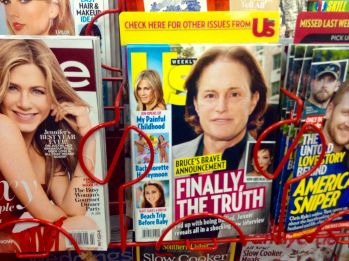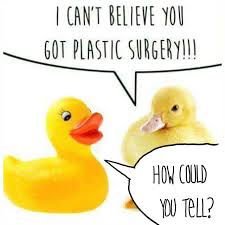Between Kylie’s lips and Bruce’s gender transformation, plastic surgery has been a big topic at the Jenner dinner table in the last few weeks. But they aren’t the only ones rocking the 2015 media with their physical alterations. It seems discussions surrounding cosmetic procedures have been trending this year, which raises a good question: Where does the United States currently stand on elective surgery issues, and what does the future hold?
It’s a difficult question that warrants a complex response. In recent months, the tabloids have been saturated with negativity directed at various celebrities for altering their looks in the name of beauty. A recent study published by the Journal of the American Society of Plastic Surgeons (JASPS) concluded that despite a rising number of roughly 15 million plastic surgeries taking place in the United States annually, there is still significant stigma attached to the topic.
Yet another study conducted by the Journal of American Medicine Facial Plastic Surgery determined that women who had undergone procedures such as cheek lifts or blepharoplasty, were considered to be more approachable, likable and friendly than they were previous to going under the knife.
It seems that plastic surgery in the United States is taking on a Clinton-era “don’t ask, don’t tell” approach. Essentially, people will like you more if you have an elective procedure – as long as you don’t tell anyone about it. Unless you opt to move away and join a new social circle after recovery, this can be a bit of a catch-22.
Even more strange is the type of procedures that have gone from extremely taboo to not only accepted, but highly praised. Sex reassignment surgery, for example, is now widely accepted as a wonderful part of embracing one’s true self. And while the topics of gender identity and transformation can’t possibly be thoroughly covered in this short article, there is no physical medical necessity in changing one’s gender.
It goes without saying; the country’s overwhelming acceptance of Bruce Jenner becoming a woman is heartwarming. Transgender equality groups have called Jenner “brave” and “inspirational.” Supportive fans have started a #PaintYourNailsForBruce campaign. Almost every headline about Jenner’s transition into womanhood is positive, applauding him for inspiring other transgenders to stop hiding and feeling ashamed of who they are.

Yet, the media has had no qualms when it comes to lambasting his daughter, Kylie Jenner, for inadvertently inspiring young girls to participate in the “Kylie Jenner Challenge” – a silly practice involving sucking on a water bottle or shot glass to plump up one’s lips. While the trend is of course extremely dangerous, Kylie has been criticized for not encouraging girls to “be themselves” and accept their bodies.
Kylie, like many other female celebrities (think Rennee Zellweger, Jane Fonda) even kept her temporary lip fillers a secret, likely for fear of judgment. And shortly after her public confession, headlines such as “Kylie Jenner: Has She Had Even More Fillers & Botox?” (Hollywood Life) are breaking the Internet.
I’m not saying the Jenners, Kardashians, or any other reality TV stars deserve more attention than they already get. But they happen to be the current focal point of an important issue. In Asian countries, eyelid lift procedures are so common they’re almost expected. Maybe this is just another extreme, but at least the trend is consistent. In Korea, double eyelid surgery is thought of as a positive physical enhancement, and those who have undergone the procedure are encouraged to be open about it.
There are of course, extremes in all cases. It’s why psychiatric evaluations are required for patients looking to have sex reassignment surgery, and is the reason some people go overboard with cheek lifts and breast enhancements, trying to obtain unrealistic goals. But when it comes to a happy medium, why is it that a gender transformation is applauded while someone who admits to having a lip injection is deemed shallow and a bad role model?
The JASPS study illuminates that even Brazil and Iran boast a surprisingly large number of cosmetic surgeries – something that is considered to “improve one’s self image and quality of life,” in such countries. In America, the stigma attached to plastic surgery seems to be a cultural phenomenon that stems from outmoded, classicistic ideals. Think of the “maybe she’s born with it,” Maybelline slogan. Somehow, if beauty is achieved in unnatural ways, it’s devalued and cheapened.

The bottom line is that from blepharoplasty to breast enlargement; plastic surgery is the choice of an individual and should be respected as such. If you met a beautiful person and they told you they had a nose job, would you find them less attractive? If the answer to that question is yes, perhaps you’re buying into the stigma.
If beauty really is skin-deep, why does American culture dictate that plastic surgery reduces one’s character? Regardless, plastic surgery in the United States is on the rise. Hopefully, its reputation will follow suit.
